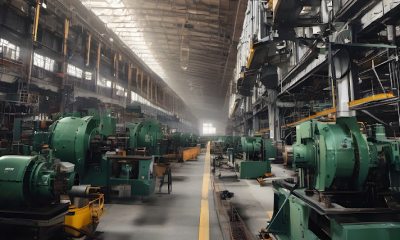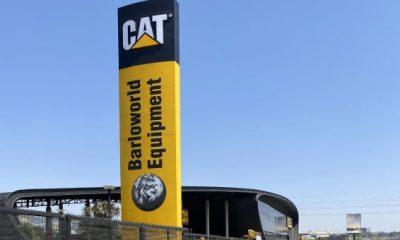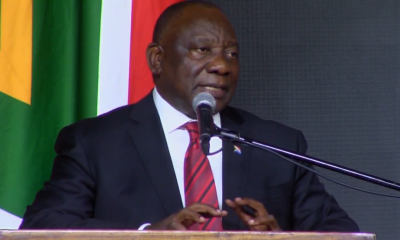Business
ArcelorMittal SA Warns of Industry Collapse Without Urgent Regulatory Reform

South Africa’s largest steelmaker, ArcelorMittal South Africa (AMSA), has issued a stark warning: unless regulatory frameworks are urgently reformed, the country’s steel industry risks further decline, job losses, and long-term economic damage.
Writing in the group’s latest annual report, chairman Bonang Mohale said 2024 was a turning point for the local steel industry, with thousands of jobs nearly lost due to delays in policy action. AMSA’s Longs Business, a critical supplier of construction and infrastructure steel, was on the verge of closure earlier this year before emergency intervention by the Industrial Development Corporation (IDC) and government.
“Inaction on critical regulations like the scrap export tax and the Price Preference System (PPS) gave competitors an unfair subsidy of over R1,000 per ton,” said Mohale. “This created a market environment that actively worked against the only company beneficiating South Africa’s iron ore locally.”
While a temporary six-month reprieve for the Longs Business was announced in March 2025, AMSA leadership is adamant that more needs to be done — and urgently. CEO Kobus Verster highlighted that steel-consuming sectors such as manufacturing, agriculture, construction, and automotive all recorded negative growth in 2024.
“South Africa limped to sub-1% economic growth in 2024,” Verster said, “with no large-scale infrastructure spend to drive demand. Meanwhile, our global competitors, many backed by billions in subsidies, dumped steel into our market at prices we can’t compete with.”
At the core of the problem are outdated or misaligned government policies, say both Verster and Mohale. Among the issues cited:
-
Artificially low domestic scrap prices due to the PPS and export restrictions;
-
A spike in imported steel — particularly long products, up 108% year-on-year;
-
Soaring input costs, with Eskom tariffs rising 800% since 2007;
-
Declining rail performance from Transnet Freight Rail, impacting delivery and production;
-
Lack of meaningful trade remedies, despite global trends in protectionism.
In 2024 alone, AMSA spent R3.2 billion on electricity and faced rail-related losses, while their Longs Business posted an operational EBITDA loss of R1.67 billion.
Globally, Mohale noted that China has outpaced much of the world in automotive steel, producing steel-intensive vehicles at a third of the cost. “South Africa must wake up,” he said. “Transformation, ethical leadership, good governance, service delivery, and law and order — these are the building blocks we must put in place.”
The company says it is encouraged by some government undertakings, including provisional trade remedies and commitments to reform scrap pricing and safeguard tariffs. Still, management warns that delays could be catastrophic.
“The world is moving,” said Mohale. “If we want to protect our industrial base and manufacturing capacity, we must act — not tomorrow, but today.”
As the new Government of National Unity takes shape in 2025, ArcelorMittal South Africa and others in the industry hope it brings with it the political will to build a stronger, more resilient industrial economy.
{Source: IOL}
Follow Joburg ETC on Facebook, Twitter , TikTok and Instagram
For more News in Johannesburg, visit joburgetc.com



























